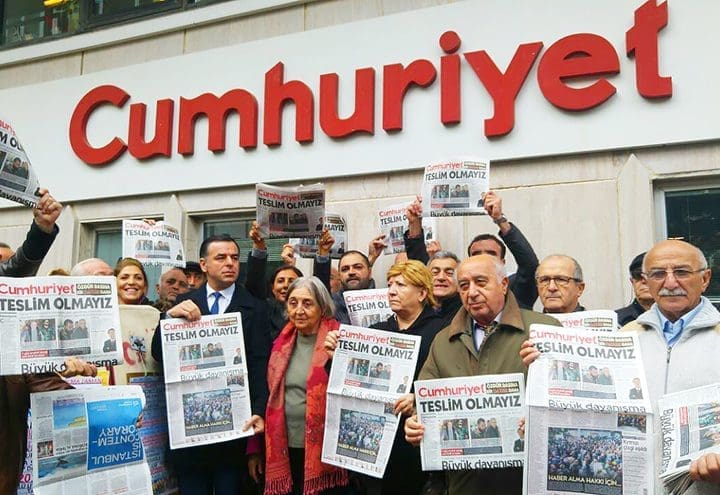Concerns about false news and misinformation have increased significantly in recent years in large part due to the impact of internet and social media platforms, which provide new pathways for false or manipulated information to be amplified at scale.
However, finding appropriate responses to false news and misinformation is difficult, not least because the concepts are ambiguously defined and therefore open to abuse. General prohibitions on the dissemination or publication of “false news” will be incompatible with international standards for restrictions of freedom of expression. State regulation to date has tended to be heavy handed and had a detrimental impact on the exercise of freedom of expression.
This resource examines false news, misinformation and propaganda in the context of international legal standards, and analyses state responses to these issues in light of their impact on freedom of expression.
There is an ongoing debate about the extent to which regulation of false news and misinformation is appropriate, or whether it infringes on the right to freedom of expression. In contrast, the response to propaganda has been more stringent, as it is expressly prohibited in international law, provided that it propagates for war or advocacy of hatred that constitutes incitement.
Summary Modules
Media Defence has developed a series of summary modules which provide an overview of false news, misinformation and propaganda, including their causes and ways in which they have been tackled through regulation and non-legal means. It is well-documented that false news, misinformation and propaganda fuel polarisation and impact rights such as freedom of expression, equality, and free and fair elections.
Advanced Modules
Media Defence’s series of Advanced Modules on Digital Rights and Freedom of Expression Online provide a more comprehensive review of current developments and jurisprudence in the field of digital rights. In combination with the Summary Modules above, these resources form the basis of our introductory and advanced litigation surgeries. The Advanced Modules have been designed to assist lawyers representing journalists, bloggers and other online media in East, West and Southern Africa. They include emerging trends in digital rights as well as tools and advice on litigating cases at the national and regional levels.
These Advanced Modules examine the increase in misinformation in modern times, as well as the responses from various international bodies including UNESCO, the European Union and the East African Court of Justice.
Journalists form a crucial part of discussions around this topic, and therefore the modules include a comprehensive overview of the challenges posed by false news and misinformation to the work of journalists.
Key Case Law
The case law regarding false news and misinformation demonstrates that the courts and international actors have had to strike a balance between recognising the social ills and repercussions occasioned by false news and misinformation and violating the right to freedom of expression.
The Supreme Court of Zimbabwe found the criminalisation of publishing false news to be unconstitutional as it constituted an unjustifiable limitation to the right to freedom of expression and the right to a fair trial.
The Washington Superior Court found that Fox News’ repeated claims that COVID-19 was a hoax were protected under the freedom of expression protections of the First Amendment.
The ECOWAS Court ruled that the offences of sedition, false news and criminal defamation in The Gambia violated the right to freedom of expression.
In the majority opinion of the US Supreme Court, Justice Anthony Kennedy wrote that “[t]he remedy for speech that is false is speech that is true. This is the ordinary course in a free society.”
Media Defence’s Work

European Court Finds Turkey Violated Cumhuriyet Journalists’ Rights to Liberty and Security, Freedom of Expression, Detained in the Crackdown Following July 2016 Coup
(Nov 11, 2020)

COVID-19: Governments Must Protect Freedom of Expression During the Pandemic
(Mar 27, 2020)

Arbitrary Detention of Journalists in Vietnam
(Jul 20, 2018)
